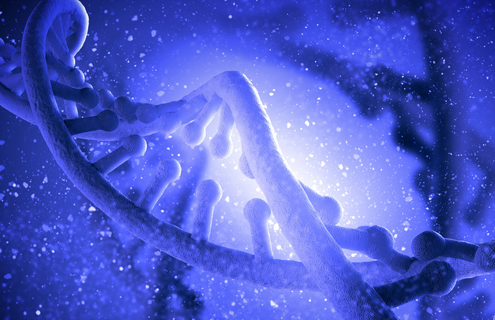
Cell and microbe authentication matters
Cell and microbial authentication is of the utmost importance; skipping the authentication step can lead to lost time and money and retractions of publication as cross-contamination or misidentification has invalidated the data that that research is built upon. For example, it’s thought that 18-36% of cell lines used in scientific research are either misidentified, duplicated, or cross-contaminated, making research results invalid. In addition, the financial cost of invalid research caused by misidentified cell lines has been estimated to exceed $50 billion. The cost of ignoring authentication is more than monetary, as over 32,000 scientific articles have based their results on misidentified cell lines. To address this problem, biomaterial validation is now required by the National Institutes of Health for grant funding and by a number of scientific journals. Additionally, the FDA requires validation of all materials included in investigational new drug (IND) applications.
Cell Line Publication Requirements
To address reproducibility in research, many scientific journals require cell line authentication as a requirement for publication. Check the journals before you publish.
Read the listReference-quality 'Omics Data
When using ATCC’s 'omics data, you can have the confidence that the data is credible, reproducible, and traceable back to the physical vial in our collection.
Explore authenticated dataCombatting misidentification and cross contamination starts with testing
Several tests for authenticating cell lines have been established as means of combatting the issues of misidentification and cross contamination. For intraspecies contamination of human or mouse cells, short tandem repeat profiling services are offered. By contrast, cytochrome oxidase 1 (CO1) barcoding can be used to identify interspecies contamination. Mycoplasma contamination, which is rampant and difficult to detect, can be detected using direct and indirect culturing methods and a PCR-based method. Additionally, As a result of implementing STR profiling as part of ATCC routine authentication procedures, ATCC discovered that some human cell lines are not as originally reported by the depositor. These cell lines were deposited many years before such procedure was available. A complete list of misidentified/reclassified cell lines can be found here.
Mycoplasma Contamination
Mycoplasmas frequently contaminate cell cultures. Discover how rapid and sensitive detection can prevent the costly effects of mycoplasma on your research projects.
Raise your standardsReclassified Cell Lines
Don’t let your research be comprised by the use of misidentified cell lines. Find out if you are using one of these commonly misidentified and reclassified cell lines.
Find out moreReference quality genome sequences further enhance biomedical research
Authentication of microbial research materials is just as important to the validity of research is as the authentication of eukaryotic cells. While recent technological advancements have enabled the generation of vast amounts of whole-genome sequencing data, publicly available reference genomes of research- and control-grade microbes often lack quality, completeness, authenticity, accuracy, and traceability. The reliability of these data is further called into question as they may have been generated using untraceable cultures and older methodologies. To address this unmet need, ATCC provides reference-quality whole-genome sequences that are derived from authenticated ATCC materials.
Repairing Reproducibility
Reproducibility is an urgent problem in life science research and development. Explore what your colleagues believe is the source of the issue and what scientists can do to solve it.
Be part of the solutionSpecies Determination
Animal cells are fundamental models for drug development, toxicity studies, and basic research. Discover why species determination of cells is critical to meet funding, quality control, and publication requirements.
Discover moreSetting New Standards for Authentication
Reproducible research starts with credible biological materials. That’s why we have made a commitment to the scientific community to provide reference-quality whole-genome sequencing data through the ATCC Genome Portal. Our Enhanced Authentication Initiative not only enriches the characterization of our biological collections by using next-generation sequencing but also includes making those data available to everyone.
Visit the ATCC Genome Portal